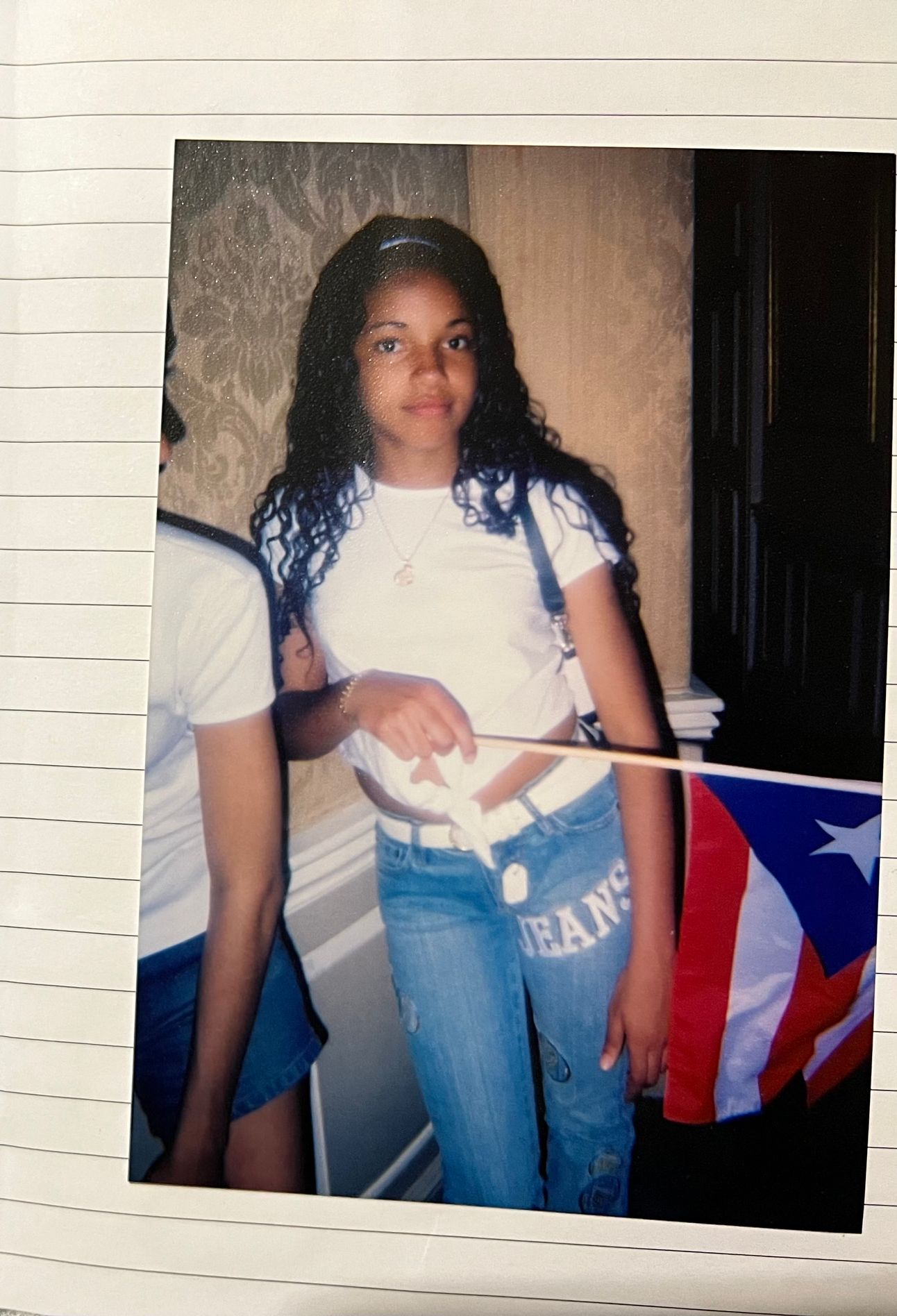- The DEI Scoop
- Posts
- Bookshelf Reflections: War Against All Puerto Ricans
Bookshelf Reflections: War Against All Puerto Ricans

Welcome to the first review of this series… Bookshelf Reflections! One of my New Year’s resolutions is to read 12 books this year and I’m surprisingly on track. As part of this 2024 goal, I’m committing to writing more book reviews.
Reading books on history, current events, or systemic racism is triggering and emotionally exhausting, so I find peace in reflecting on what I’ve learned through journaling or keeping a commonplace book on important facts.
Bookshelf Reflections will be a snippet of what I unpack with the hopes that you’ll learn something along the way as well.
Porto Rico will be kept…Once taken it will never be released. It will pass forever into the hands of the United States… its possession will go towards making up the heavy expense of the war to the United States. Our flag, once run up there, will float over the island permanently.
Written by Nelson A. Denis, War Against All Puerto Ricans is one of the most heartbreaking and emotionally-provoking books I’ve ever read. The pages are filled with triggers and eye-opening historical facts detailing the US’s systematic attempts to erase 400 years of language and culture. These events have perpetuated the negative perceptions many Puerto Ricans have to confront today.
Although I was raised by my maternal (Puerto Rican) grandparents, I wasn’t aware of what the island endured during colonization, which should serve as an indicator of how much the US has tried to erase these events from our history books.
The book is split into 3 major parts: Facts, People and Events. The author, Denis, does an amazing job of humanizing the challenges, tragedies and personal stories of prominent historical figures whose names we should never forget.
With that being said, I’m eager to share what I’ve unpacked with you!
Public Law 53.
I was brought up to be an American who was proud of her Puerto Rican heritage. Throughout my upbringing, I demonstrated this sense of pride in various ways but while reading War Against All Puerto Ricans I was reminded by all the instances in which I happily paraded the Puerto Rican flag. At every opportunity, whether it was hanging the flag somewhere in my room or on my clothing, or incorporating "Boriqua" into every AOL/AIM screen name I created, I never realized what a privilege it was until now.
These memories resurfaced when I learned about Public Law 53 aka Gag Law. This law deemed owning a Puerto Rican flag and any mention of independence a felony, punishable by jail time. Flags were usually found during home raids of random people who were assumed to be Nationalists. Every flag that was confiscated was burned and imprisonment was inevitable. Whistling of La Boriqueña, Puerto Rico’s national anthem, was also considered a felony. This song was one of my 4th Grade graduation songs, which makes this Law that much more shocking.

Carpetas
Any reason to arrest a native never ended there. Any and all information collected about an individual would be added to their carpeta. A carpeta is a ‘secret police dossier containing detailed personal data and were compiled over years and decades.’ The information about an individual was collected through recorded phone calls, personal letters intercepted at the post office and could be so personal that names of sex partners would be included. Here are some ‘fun facts’ about carpetas:
Carpetas were used to control or imprison people, get people fired, destroy careers, terminate educations or even permanently discredit people.
Information varied from school transcripts, employment history, religious practices, political affiliations, club memberships, bank accounts, taxes paid, family and marital records, sexual partners… the list went on.
This US policy lasted for nearly 60 years causing irreversible damage.
Albizu Campos
An important person in the history of Puerto Rico’s fight for independence had nearly 5,000 pages in his carpeta. It was Albizu Campos. His leadership and fight for independence is crucial when retelling the history of the US’s colonization of Puerto Rico.
No matter how many degrees he earned or how many times the people at Harvard patted him on the head, he would never be one of ‘them.’ And so, to give meaning and purpose to his own life, Albizu devoted himself to the cause of Puerto Rican independence.
As the first Puerto Rican to graduate from Harvard College and Harvard Law School, you would think his name would be listed in the Widener Library’s catalog. However, to Denis's surprise, he could not find anything about the ‘principal figure in Puerto Rican political history.’ This is probably because Albizu lost his law degree when he was wrongfully imprisoned for the death of Colonel E. Francis Riggs (heir to the Riggs National Bank fortune). This happened shortly after refusing Riggs’ $150,000 donation (bribe) to the Nationalist Party in exchange for allowing Riggs to handle the sugar cane strike of 1934.
History Repeats Itself
There are too many important moments shared in this book to discuss and reflect on, but there are many that are repetitive to what we see today. For one, Albizu lost his law degree after not accepting a bribe and I can only think about the parallels to this day in age where you can get fired for simply having an opinion about politics or expressing your views against genocide.
In addition to that, what was supposed to be a peaceful march on Palm Sunday in support of Albizu resulted in 17 unarmed civilians being killed. Albizu’s inevitable imprisonment changed his life forever, but also changed the lives of hundreds of Puerto Ricans. His wrongful conviction made it clear that any and all Nationalists would never get a fair trial, which led to the Ponce Massacre. The bloodshed that was left behind is too triggering to summarize, but what's important about this story is the truth that was revealed.
This one in particular reminds me of George Floyd and what his tragic death represented for the uprising of the Black Lives Matter and DEI movements in 2020. Without the disturbing and triggering footage of a police officer kneeling on Floyd's neck and back for 9 minutes and 29 seconds, causing his death from a lack of oxygen, there would not have been justice.
Colonel Enrique de Orbeta had attempted to stage what caused the loss of the 17 innocent and unarmed civilians during The Palm Sunday march. Without Juan Emilio Viguié's determination to film what was taking place throughout the island during Albizu’s leadership, there would not have been footage of the Colonel posing for said photos to sell a fabricated story to the press in an attempt to cover up the carnage that he and his officers caused during a peaceful protest.
How many times have we read about instances like this? How many times haven’t we seen this happen with our own eyes, at work or in social settings?
Albizu Campos had been silenced forever.
Reading and reflecting on Albizu’s relentless fight for independence, and how he along with many others, were killed for said efforts, brought tears to my eyes. Shortly after the Puerto Rican Revolution ended, Albizu and over fifty other Nationalists were given life sentences. Throughout the 25 years he spent imprisoned, he was deliberately tortured through radiation experiments in his jail cell. He experienced splitting headaches, saw “ribbons of light on all the walls, in all colors” and experienced ‘what felt like a full-body sunburn.’ Although doctors found burn marks and arterial hypertension, his condition was ignored, worsened and ultimately killed him. Nine years prior to Albizu’s death, he suffered a heart attack which left his entire right side paralyzed, removing his ability to speak.
Why Stereotypes are Harmful
The colonization of Puerto Rico, as with all colonization methods, has led to irreversible damage: separation of families, erasure of a culture and language, and the death of many innocent lives. Reading 300+ pages about it was triggering and heartbreaking, so I want to acknowledge how page after page reminded me of every stereotype I’ve ever had to confront as a Puerto Rican growing up in America and why we need to do better.
Language
Let’s start with the belief or generalization that Puerto Ricans don’t speak their native language, and if they do, it's spanglish. The term for this is ‘linguistic shaming.’ ‘Linguistic shaming undermines people's pride in their cultural heritage. And yet, for many decades, many Puerto Ricans have been subjected to linguistic shaming, which is the act of criticizing or mocking someone's speech patterns, accent, or choice of words.’ This is harmful and ignorant thinking.
During peak colonization, teachers in every school across the island were expected to teach every single subject in a language they barely understood or spoke - English. Not only was ‘every subject, in every class, in every public school’ taught in this foreign language, but every textbook was also written in English. This is a well-thought out attack on Puerto Rico’s language and the attempt to completely eliminate it, so it's no surprise that the generations to come would struggle with knowing their native language.
US Citizenship
Another harmful belief is how Puerto Ricans should feel lucky or be appreciative of the fact that they’re granted automatic citizenship as a result of being a US colony. While I can understand how hard it is to achieve the ‘American Dream’ and this seems to put us a step ahead in chasing that dream, it couldn’t be more of an insult.
Many, many Nationalists lost their lives and died in prison fighting for Puerto Rico’s freedom. The thought of allowing the US to easily colonize their island and eliminate their culture, whose name it took 34 years to spell correctly, was worse than spending the rest of their lives in prison because of what long-term colonization would mean. Read that again.
In just a few years, the US was able to:
Deliberately torture every prisoner or nationalist in La Princesa - known to be one of the nastiest and most feared prisons in the Caribbean.
Whitewash every public school curriculum, influencing students to learn about a foreign land, government policies and foods they would never get to see
Sterilize more than 1,000 women each year without their full knowledge or consent due to a fear of white supremacy declining. This resulted in Puerto Rico having ‘the highest incidence of female sterilization in the world.’
Elect various American politicians to run an island they knew nothing about. When a native was finally elected, it was only to control every aspect of PR’s politics through a bribe because this particular governor’s carpeta was more than he could handle being exposed.
Now let’s think about what US citizenship represents for many Puerto Ricans - whether they know it or not. Let’s also think about whether we would still accept citizenship if it meant our homeland would have to endure everything I’ve shared and more. The answer would probably be no.
If you decide to buy the book and read it for yourself, I highly recommend reading something light afterwards and finding a safe space to talk about what you learned. You can always share your thoughts by emailing [email protected].
Reply